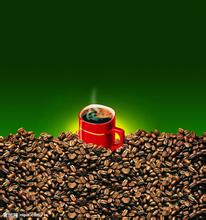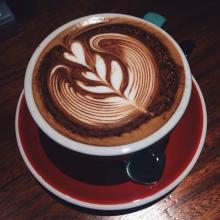Introduction to the flavor and taste of Ecuadorian coffee farm Hassanda coffee garden Ecuadorian coffee beans
Because of the unique role of the Galapagos Islands in the course of history, the Government of Ecuador has designated the Galapagos Islands as a national park, the land is no longer allowed to be reclaimed as new agricultural land, and the introduction and use of chemical fertilizers, pesticides, herbicides and other chemicals are strictly prohibited, so coffee produced in the Galapagos Islands is recognized as a natural product.
Ecuador ES Coffee-Ecuador
The famous South American brand, Ecuadorian Grade A coffee, has a large state-run seed value garden; 100% is produced in the natural vegetation zone of 1300-2000 meters highland, popular in Europe and the United States, and tastes exquisite world-class Arabica Arabica flavor at supermarket prices.
ES Coffee is a clean organic coffee grown on the slopes of the Andes in Latin America. It is 100% pure coffee, and the quality of our coffee has been guaranteed and improved by working to improve the economic and working conditions of the plantation, while maintaining the small scale of the coffee plantation and the biodiversity in the hospital. In addition, it is one of the very important economic sources of coffee origin, because it is all dried and packaged locally, which ensures that it is a very unique kind of coffee in the world! At the same time, it also ensures its unique taste as coffee is drunk by people all over the world, and the world coffee industry is also moving towards mass production, while the coffee industry, such as St. Cristobal, is in trouble and is likely to be forced to give up without profit. It wasn't until the early 1990s that the Gonzalez family bought Hasunda Coffee Park. The localized microclimate caused by the Humboldt current (HumboldtCurrent), strong equatorial sunlight and sharp temperature changes (43 ℃ at sea level and 10 ℃ to 16 ℃ above sea level) provided advantageous conditions that prompted the Gonzalez family to expand their coffee plantation. Through the reclamation of early land, the Gonzalez family doubled the size of the coffee plantation. 340 years after Frey Thomas de Belanga discovered the island, in 1875, a native named Kovos came to St. Cristobal Island, where he established the Hasunda Coffee Garden and planted about 100 hectares of Arabian bourbon coffee trees. Because the plantation is located between 140m and 275m above sea level and the climate is equivalent to that of inland 915m ~ 1830 m, the unique geographical conditions are very suitable for the growth of high acidity extra hard coffee beans (SHB), so this kind of high-quality coffee has settled down here.

Important Notice :
前街咖啡 FrontStreet Coffee has moved to new addredd:
FrontStreet Coffee Address: 315,Donghua East Road,GuangZhou
Tel:020 38364473
- Prev

Pure and fragrant Puerto Rican Coffee Taste introduction to San Pedro Manor
Puerto Rico's coffee beans are carefully planted, pure, aromatic and heavy, of which the best coffee is Yauco Selecto, which means Selecto. Yaocote Coffee is grown only on three farms in the southwest of the island, San Pedro, Caracolillo and La Juanita. It is a truly high-quality coffee with a strong flavor and a long aftertaste. Puerto Rico
- Next

Panamanian Coffee Flavor and Taste the characteristics of Panamanian Coffee in Esmeralda Manor
The finest coffee in Panama (Panama) is grown in the west of the country, near Costa Rica and the Pacific Ocean. The Boquet district of Chiriqui province is the most famous for its coffee, as well as Wakan, Santa Clara and Kendra. Other areas include David, Remacimeinto, Bugaba and Tolai (T).
Related
- Does Rose Summer choose Blue, Green or Red? Detailed explanation of Rose Summer Coffee plots and Classification in Panamanian Jade Manor
- What is the difference between the origin, producing area, processing plant, cooperative and manor of coffee beans?
- How fine does the espresso powder fit? how to grind the espresso?
- Sca coffee roasting degree color card coffee roasting degree 8 roasting color values what do you mean?
- The practice of lattes: how to make lattes at home
- Introduction to Indonesian Fine Coffee beans-- Java Coffee producing area of Indonesian Arabica Coffee
- How much will the flavor of light and medium roasted rose summer be expressed? What baking level is rose summer suitable for?
- Introduction to the characteristics of washing, sun-drying or wet-planing coffee commonly used in Mantenin, Indonesia
- Price characteristics of Arabica Coffee Bean Starbucks introduction to Manning Coffee Bean Taste producing area Variety Manor
- What is the authentic Yega flavor? What are the flavor characteristics of the really excellent Yejasuffi coffee beans?

